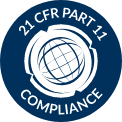A close collaboration of scientific writers and biostatisticians to design your research project and communicate…

Site Support
Do you need experienced Clinical Research Assistants to assist you?
Our Clinical Research Assistants / Site Study Coordinators are experienced and regularly trained on the latest GCP regulations.
Their location near major university cities gives them a good knowledge of local investigational structures, and allows ICTA to offer cost effective solutions.
DO YOU NEED EXPERIENCED CLINICAL RESEARCH ASSISTANTS
TO ASSIST YOU?
For some projects, you may be short-staffed and may need the assistance of qualified Clinical Research Assistants (CRAs) with professional experience who can step in to bring site support and take charge of your clinical study activities.

If this is the case, you may want to consider ICTA’s network of regional CRAs to handle your monitoring activities and on-site data collection. Recognised for the quality of its recruitment and training, ICTA can provide you with experienced Clinical Research Assistants/Site Study Assistants across Europe. Whether regional or central monitoring activities are required, our skilled CRAs will address your needs of your study.
WE PROVIDE EXPERIENCED CRAs AND SITE STUDY assistantS RESPONSIVE TO THE NEEDS OF SITES
Follow-up of investigator sites
- From site selection to close-out visits with the possibility of « remote monitoring »
- Management of the investigation site and financial contracts
- Solid experience in risk-based monitoring
On-site data collection
- Under a mandate from the investigator
- Validation of patient informed consents
- Support for the mailing of patient information letters in case of a retrospective study (MR-004)
- Collection of data from patient files
- Data entry into the e-CRF and assistance in solving queries
- Support for vigilance notifications
Reporting and communication
- Progress report and continuous communication with the French or international team
- Good command of EDC tools and CTMS
- Integrated escalation process
BY CHOOSING ICTA YOU BENEFIT FROM
MANY ADVANTAGES
Regional and experienced CRAs/SSAs with higher scientific education (Masters degree, PharmD, PhD)
Knowledge of local investigator sites
Experience across a large range of therapeutic areas
Low turnover
Proven ability to work independently
Secure operational equipment (smartphone, laptop, etc…)
Other services















